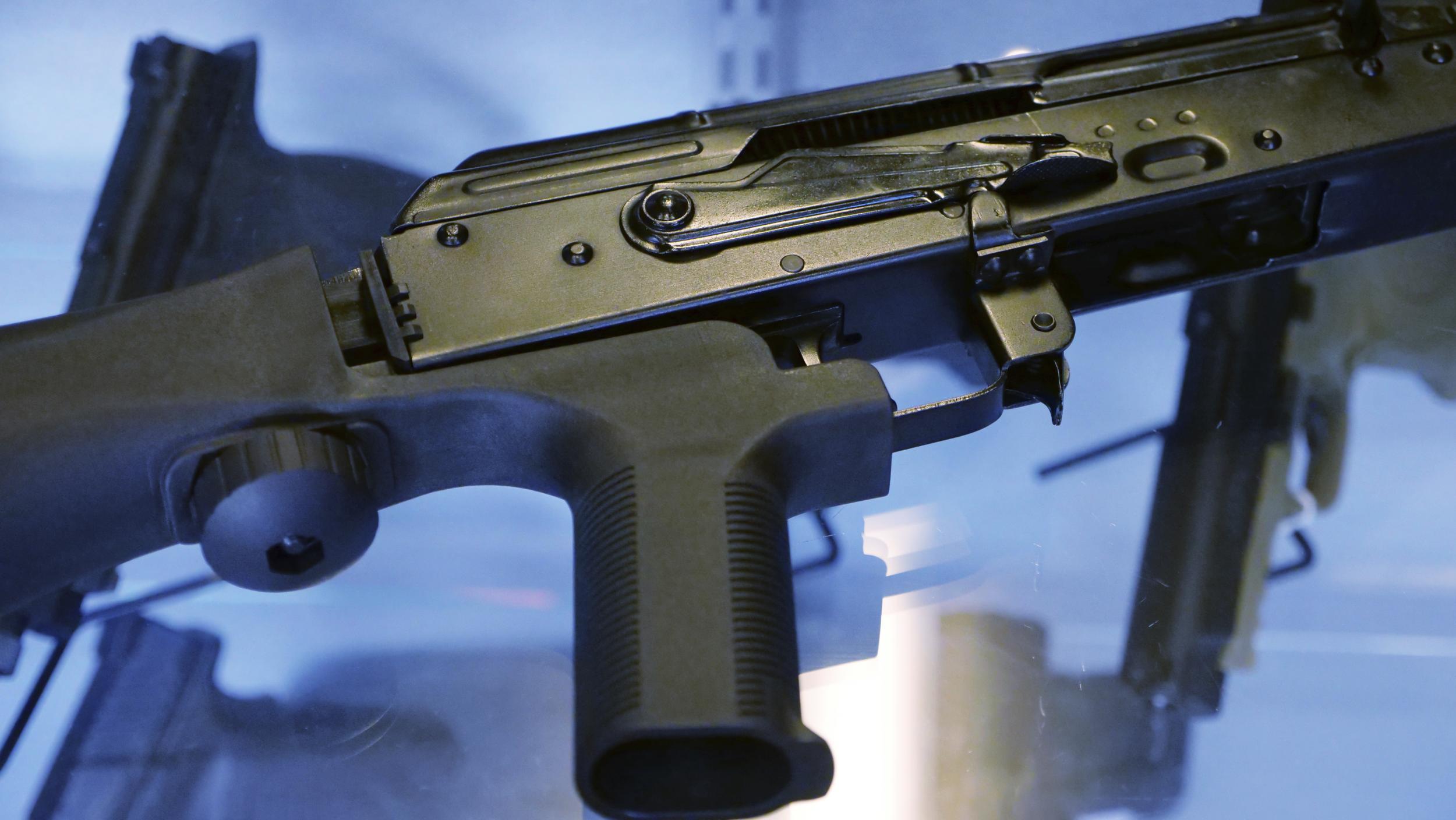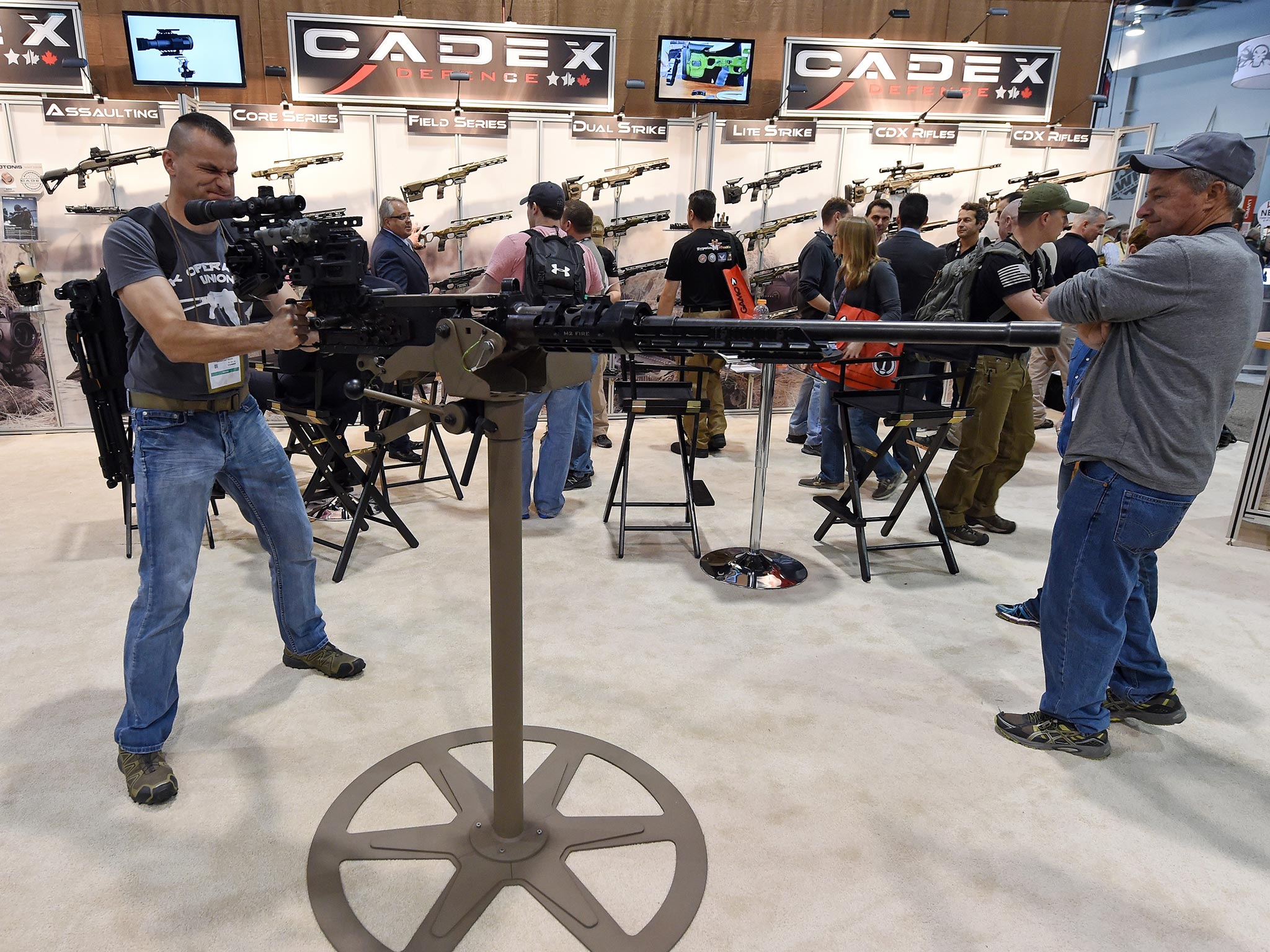Las Vegas shooting: 'Bump stocks' sell out after being used by Stephen Paddock to rapidly increase rate of fire
The little-known device allows semi-automatic guns to function as automatic weapons

Your support helps us to tell the story
From reproductive rights to climate change to Big Tech, The Independent is on the ground when the story is developing. Whether it's investigating the financials of Elon Musk's pro-Trump PAC or producing our latest documentary, 'The A Word', which shines a light on the American women fighting for reproductive rights, we know how important it is to parse out the facts from the messaging.
At such a critical moment in US history, we need reporters on the ground. Your donation allows us to keep sending journalists to speak to both sides of the story.
The Independent is trusted by Americans across the entire political spectrum. And unlike many other quality news outlets, we choose not to lock Americans out of our reporting and analysis with paywalls. We believe quality journalism should be available to everyone, paid for by those who can afford it.
Your support makes all the difference.For more than a year, the Georgia Gun Store in Gainesville, Georgia, had no requests for a "bump stock", an accessory that transforms a semi-automatic rifle into a weapon capable of firing hundreds of rounds a minute.
But following Sunday's mass shooting in Las Vegas, the shop fielded several calls from customers asking about the product, apparently out of concern that lawmakers may outlaw it. The store's owner, Kellie Weeks, said several distributors were out of stock when she called them seeking supplies.
"Anybody that wants to get them is probably just worried that they're going to be banned," Ms Weeks said.
Authorities say the shooter, Stephen Paddock, had 12 rifles outfitted with bump stocks among the arsenal of weapons in his hotel room, and audio of the attack suggested he used weapons with rapid-fire capabilities.
The increased interest in bump stocks echoed the spike in gun sales that often follows a high-profile mass shooting, as gun owners become concerned about stiffer gun control laws. Gun company stocks rose in market trading following Sunday's attack.
Democratic US Senator Dianne Feinstein introduced a bill on Wednesday that would outlaw bump stocks and other devices that, as she put it, "easily and cheaply modify legal weapons into what are essentially machine guns".
Several Republicans, who typically oppose gun restrictions, signalled openness to the idea. The No 2 Republican in the Senate, John Cornyn of Texas, called for a hearing on bump stocks.
In a likely effort to avoid controversy, Wal-Mart Stores Inc and the sporting goods store Cabela's both appeared to pull bump stocks from their websites on Wednesday. Calls to the companies seeking comment were not returned.
Fully automatic weapons like machine guns, which fire continuously with a single trigger pull, have been largely banned since 1986. By contrast, semi-automatic rifles fire a single bullet each time the trigger is engaged and are widely available for sale.
When attached to a semi-automatic rifle, a bump stock uses the gun's recoil energy to "bump" the trigger into the finger, causing it to fire far more quickly than possible if using one's hand manually.
The device is frequently advertised as simulating a machine gun. One online video shows a shooter unloading 100 rounds in seven seconds.
The product is legal because the trigger is still technically pressed for each round.

On Wednesday, comments on the Facebook page for Slide Fire, a leading bump stock manufacturer, were split between critics who blamed the company for the massacre and customers who said they planned to buy more bump stocks.
"Keep the faith, love your product," a woman named Ashley Foote wrote.
"How about Stephen Paddock? I betcha he left a great review, 5 stars!" retorted Paul Scott.
The owner of Slide Fire, Jeremiah Cottle, did not respond to numerous messages seeking comment. In an interview with the website Ammoland last year, Cottle said his product was intended for people who "love full auto".
The device is more of a novelty item than a popular seller, according to several gun dealers, in part because it sacrifices accuracy and uses so much costly ammunition.
"They do sell a little bit, but it's very minimal," said CJ Calesa, an employee at Birmingham Pistol Wholesale in Trustville, Alabama. "We usually sell 10 or so a year."
Mr Calesa said the store began receiving calls from customers about bump stocks on Tuesday.
"I have no idea why, but anytime an unfortunate situation happens and they start talking about getting rid of stuff, we get those phone calls," he said.
Reuters
Join our commenting forum
Join thought-provoking conversations, follow other Independent readers and see their replies
Comments